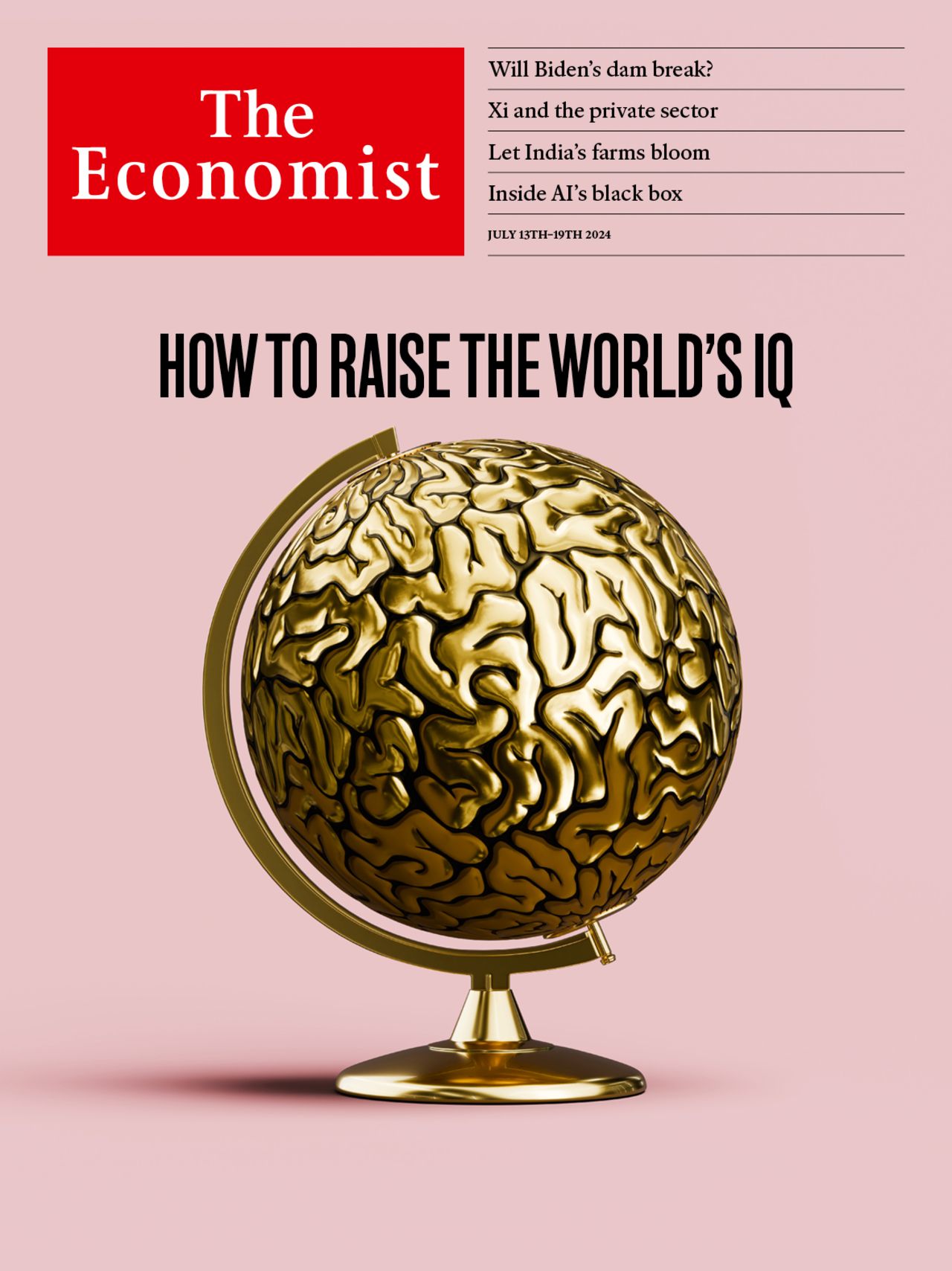Small investments in nutrition could make the world brainier
Many pregnant women and babies are malnourished—and not just in poor countries

Kebita Naima was a month pregnant when men with guns burned her home and stole everything she had. Terrified, she fled her village in eastern Congo. With a dozen relatives she walked for a week, hoping to reach Uganda, the calmer country next door. “We had nothing, no food at all,” she recalls—only water from streams and wild fruit. When she crossed the border she was “so weak and so hungry”.
That journey, and the months of deprivation that followed, affected her unborn daughter, Ms Kebita suspects. Sitting outside her home in Lobule, a village in northern Uganda, she notes how the girl, Amina, now 11, is noticeably slower than her younger brother, Mubaraka, who was better nourished both in the womb and in infancy. He started to talk a year earlier than his sister, and to walk nearly two years earlier. “He always wants to know things. He sees older kids climbing trees, and he wants to join in,” says his mother.
This article appeared in the Briefing section of the print edition under the headline “Food for thought”
More from Briefing

A shift in the media business is changing what it is to be a sports fan
Team loyalty is being replaced by “fluid fandom”

Will Binyamin Netanyahu’s visit to America repair or weaken ties?
He may damage relations with Israel’s indispensable protector

Optimistic plans for post-war Gaza have little basis in reality
Aid, policing, reconstruction—everything is even harder than it sounds
Introducing “Boom!”
A six-part series about the generation that blew up American politics
One generation has dominated American politics for over 30 years
How have they become so entrenched?
Senility in high office
Even leaders who are spry for their age eventually lose their grip
